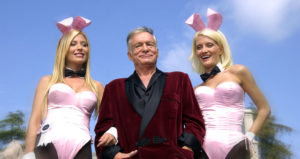It must have been some time after the first brothel scene, but well before Jamie Lannister threw a child out of a window after being discovered mid-coitus with his twin sister, that the first audiences of HBO’s Game of Thrones realised what a fantastically perverse time they were in for. When it debuted in 2011, the show had all the makings of a premium cable hit, with a huge budget and extravagant sets. But what it had more than anything, and what set it apart from your average primetime fare, was lots and lots of naked people having lots and lots of sex.
By the time the series wrapped up in 2019, the shockingly sexy early promise of Game of Thrones had been eclipsed by grumbling about how badly it ended. The show’s quality, everyone agreed, dropped off sharply once it started to outpace its source material, George R.R. Martin’s A Song of Ice and Fire series. But today, with a new prequel series centred on the Targaryens about to debut on HBO, it’s that sacred source material — and the show’s extraordinarily steamy-even-by-HBO-standards legacy — that’s making everyone jumpy.
In advance of the premiere of House of the Dragon, creatives behind the show have been falling all over themselves to assure audiences that their new narrative is just as sexy as the original, except without all the actual sex. According to the Hollywood Reporter, showrunner Miguel Sapochnik said the show will retreat from actual sex scenes, “while adding glimpses of how sex is a nonchalant aspect of Targaryen life”.
If you’re confused by the notion that audiences will catch “glimpses” of casual sex without any sex scenes, you’re not alone. It’s hard to overstate how strange a Westeros without sex would be, particularly given that the Targaryens are canonically one of the sluttiest families in Westeros. The show’s sex scenes were like a show-within-the-show, just this side of pornographic; the very progressive website Jezebel — which unabashedly adored the series, so different was the world back then — lovingly griped about all the nakedness but also suggested a drinking game that involved doing a shot for every nude scene, with the explicit goal of giving oneself a case of cirrhosis by the season’s end. Everyone knew it was over the top, but the reaction was amusement, not outrage.
Watching Game of Thrones felt like getting away with something. The Seven Kingdoms were a patriarchy governed by sordid, and sometimes sadistic, sexual dynamics. In this exceptionally gritty fairy tale, there were bold knights and fair maidens, battles and brothels, cunning women who wielded sex as a weapon that could also be turned against them (and often was) at any moment. It was so titillating, and so not politically correct — but wrapped up as it was in the cloak of high fantasy, set in a world where snow zombies roamed the winter woods and indoor plumbing and electricity did not exist, it was easy to excuse it.
The sexual violence was safely confined by fantasy, but it also raised the stakes: plumbing the depths of human depravity was one of the things that made the show feel real, and that made us fear for and care about its characters as if they were people we knew. As George R.R. Martin, responding to critics who asked why he included sexual violence in his work, once said: “An artist has an obligation to tell the truth. My novels are epic fantasy, but they are inspired by and grounded in history. Rape and sexual violence have been a part of every war ever fought.”
For the first few seasons, even for devout feminists, this was reason enough to turn off the woke part of your brain for an hour each week — or even to appreciate it for its strong female character studies. It was just everyone’s bad luck that Game of Thrones was walloped right at its narrative midpoint by the double whammy of Donald Trump’s presidential campaign and the #MeToo movement. Resistance feminism was on the ascent, and it was coming for the culture.
The first sign that the bubble had burst came in May 2015, after the episode in which Sansa Stark is raped on her wedding night by the vicious Ramsay Bolton. Overnight, the show’s sexual violence was suddenly a serious problem, the subject of multiple “we need to talk about” headlines, the trigger for lots of flouncing and performative outrage from tastemakers (and in some cases, sitting senators) who declared that they’d never watch again. In truth, what this moment revealed was the shifting modes of cultural discourse, and the rise of opportunistic offence-taking as a power play — rather than any actual concern over the depiction of sexual assault. This was, after all, a show that had not long ago featured a pregnant woman being stabbed to death, a man being sexually assaulted with leeches, and one character being flayed (on-screen) before having his penis cut off (not shown, but horribly implied).
And while this was the last time anyone was explicitly raped on Game of Thrones, the bloom was off the rose — and the stink of having being deemed Bad For Women would not wash off (even as the show tried to prove its feminist bona fides by showing a penis the following season). From this moment forward, any ordeal a female character suffered was declared to be too much and chalked up as further evidence of the show’s misogyny. The conflict between Sansa and Daenerys at Winterfell? Sexist. Daenerys going the full Mad Queen? Sexist. Jon Snow killing Daenerys… well, yes, she deserved it, she’d just overseen a genocide, but couldn’t they have found a woman to do it?
All of this makes it strange that HBO is returning now to the poisoned well of Westeros-based content, all while trying unsuccessfully to preemptively assure audiences that there’s still plenty of the sexy sex they love, but not the bad kind. (And really, any sex scene that involves Matt Smith in a wig is, by definition, the bad kind.) It’s also a marked change in tone after the past few years of markedly unsexy HBO prestige dramas: Succession, The Outsider, Mare of Easttown, and The White Lotus all noticeably shied away from depicting sex onscreen, let alone the sort of extravagant flesh-fest that marked the early seasons of Game of Thrones. And based on the early media buzz, professional critics seem disinclined to let a show get away with the type of morally-ambiguous sexual shenanigans that made the original series such a hit.
On the other hand, these critics — and their bizarre insistence on viewing every work of art through the same narrow, sanctimonious lens — have never been more divorced from the tastes of the average television viewer, who just wants to be entertained. And if HBO has decided to make a show for the masses — a big splashy affair full of dragons and fighting and love and sex and violence — it’s a fair bet that they’ll find no shortage of people who want to take that journey. Anyone who liked Game of Thrones enough to fancy a return visit to Westeros not only knows that it’s a perverse place, they’ll be counting on it — and the handful of people who actually stopped watching the first series over its depiction of women are hardly likely to be back for more.
In 2022, there is no shortage of content that advertises itself as Good For Women, for those who like that sort of thing. But those who don’t are out there, ready and waiting to embrace the fantasy again, darkness and all.
Disclaimer
Some of the posts we share are controversial and we do not necessarily agree with them in the whole extend. Sometimes we agree with the content or part of it but we do not agree with the narration or language. Nevertheless we find them somehow interesting, valuable and/or informative or we share them, because we strongly believe in freedom of speech, free press and journalism. We strongly encourage you to have a critical approach to all the content, do your own research and analysis to build your own opinion.
We would be glad to have your feedback.
Source: UnHerd Read the original article here: https://unherd.com/




